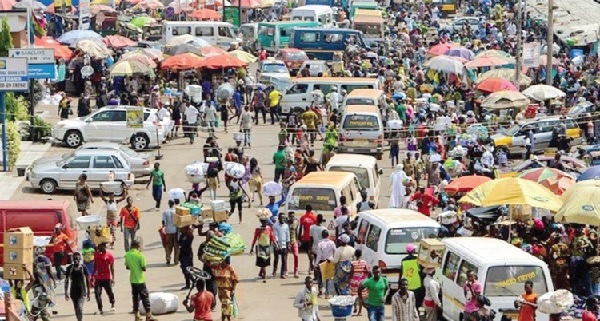A recent report by Fitch Solutions indicates that real household spending in the country is expected to experience a notable recovery in 2025, growing by 2.5 per cent year-on-year.
This marks a significant improvement from the modest 1.1 per cent growth recorded in 2024. The forecast is underpinned by easing inflationary pressures and expected stability in the local currency, which is likely to create room for a more accommodative monetary policy stance by the Bank of Ghana (BoG).
The projected rebound in consumer spending aligns with Fitch's broader macroeconomic outlook, which anticipates real GDP growth of 4.2 per cent year-on-year for Ghana in 2025.
Ghanaian households are expected to benefit from this improved growth environment, with potential upside in consumption supported by lower inflation and stronger cedi performance.
Total household spending is forecasted to reach GH¢129.7 billion (at constant 2010 prices), representing a 25.4 per cent increase over the pre-pandemic level of GH¢103.4 billion recorded in 2019.
Key drivers
The key drivers of this growth include the anticipated stability in the local currency and easing inflationary pressures. Fitch believes that these factors will create a favourable environment for households to increase their spending.
The agency notes that Ghanaian households will benefit from the improved growth environment, with potential upside in consumption supported by lower inflation and stronger cedi performance.
Downside risks
However, Fitch cautions that the consumer outlook remains clouded by significant macroeconomic headwinds. Persistent inflationary pressures, volatile interest rates, trade tensions and risks of labour market softening pose downside risks to household consumption, especially discretionary spending. Geopolitical tensions and economic uncertainty will continue to weigh on consumer sentiment, limit wage growth and affect business confidence.
The agency further warned that many households have yet to see a meaningful recovery in real purchasing power, which remains weakened by the inflationary shocks of 2022 to 2024.
Cautious spending
While price levels have begun to stabilise, the lag in real wage growth suggests that households may remain cautious in their spending patterns, even as macroeconomic indicators point to a gradual recovery.
This cautious approach to spending may limit the extent of the recovery in household consumption and Fitch's forecast may be subject to revision if the macroeconomic headwinds persist.
The forecasted growth in household spending in Ghana is a positive development, driven by easing inflationary pressures and expected stability in the local currency.
However, the consumer outlook remains subject to significant downside risks and households may remain cautious in their spending patterns due to the lag in real wage growth.
As Ghana navigates its economic recovery, it is essential that policymakers maintain a focus on promoting economic growth, reducing inflation and improving the lives of Ghanaians.
